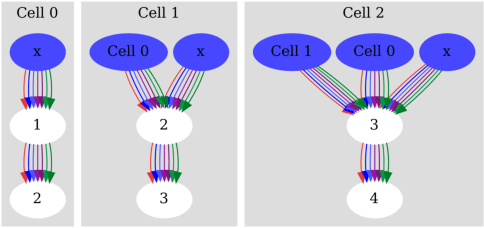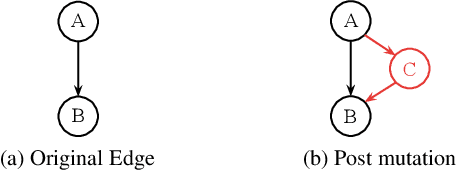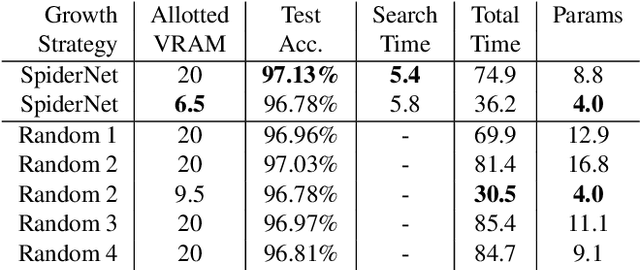SpiderNet: Hybrid Differentiable-Evolutionary Architecture Search via Train-Free Metrics
Paper and Code
Apr 20, 2022



Neural Architecture Search (NAS) algorithms are intended to remove the burden of manual neural network design, and have shown to be capable of designing excellent models for a variety of well-known problems. However, these algorithms require a variety of design parameters in the form of user configuration or hard-coded decisions which limit the variety of networks that can be discovered. This means that NAS algorithms do not eliminate model design tuning, they instead merely shift the burden of where that tuning needs to be applied. In this paper, we present SpiderNet, a hybrid differentiable-evolutionary and hardware-aware algorithm that rapidly and efficiently produces state-of-the-art networks. More importantly, SpiderNet is a proof-of-concept of a minimally-configured NAS algorithm; the majority of design choices seen in other algorithms are incorporated into SpiderNet's dynamically-evolving search space, minimizing the number of user choices to just two: reduction cell count and initial channel count. SpiderNet produces models highly-competitive with the state-of-the-art, and outperforms random search in accuracy, runtime, memory size, and parameter count.
 Add to Chrome
Add to Chrome Add to Firefox
Add to Firefox Add to Edge
Add to Edge